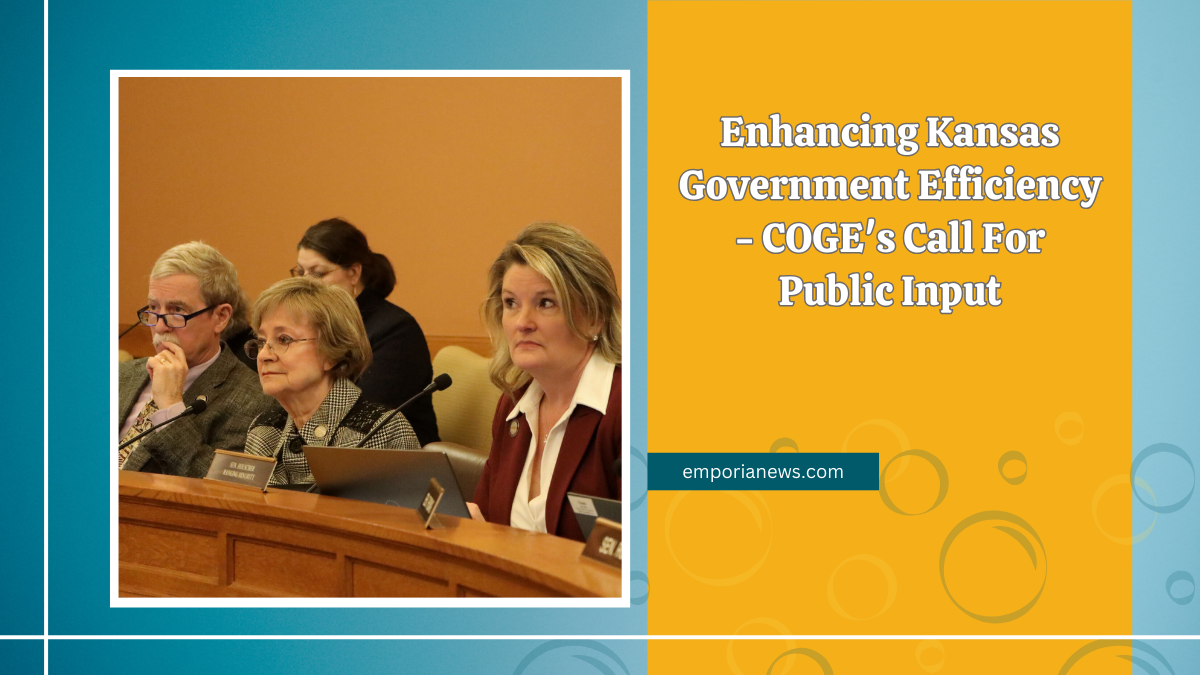In an effort to streamline state operations and reduce unnecessary expenditures, the Kansas Senate has established the Committee on Governmental Efficiency (COGE).
This initiative mirrors similar efforts in other states, aiming to identify and eliminate waste within government functions.
COGE has launched a public portal inviting residents to submit suggestions for improving governmental efficiency.
COGE’s Public Engagement Portal
COGE‘s online platform encourages Kansans to contribute their ideas on enhancing state government performance. The portal requests participants to provide their name, age range, and address, with an optional email field.
Submissions are limited to 3,500 characters (approximately 575 words) and are considered public records under the Kansas Open Records Act. This transparency ensures an open dialogue between the government and its citizens.
Key Areas for Potential Efficiency Improvements
Several domains have been identified where efficiency enhancements could yield significant benefits:
Election Integrity Initiatives
- Financial Implications: Kansas has previously allocated substantial funds to investigate voter fraud, which studies have shown to be exceedingly rare. Redirecting these resources could result in considerable savings.
- Impact on Voters: Efforts to tighten voting regulations often disproportionately affect minority communities, potentially leading to disenfranchisement.
Privatization of Public Services
Child Welfare System: The state’s move to privatize child welfare services has faced challenges, including complex systems and outdated technology, leading to over $800 million in unpaid child support as of September 2024. Reevaluating this approach could enhance service delivery and financial accountability.
Lobbyist Influence and Legislative Transparency
- Expenditures on Lawmakers: In 2023, lobbyists spent over $800,000 on Kansas legislators, primarily on meals and entertainment. This significant expenditure raises concerns about the potential for undue influence over legislative decisions.
- Case Study – Sports Betting Legislation: The passage of the sports betting law involved extensive lobbying efforts, including providing legislators with gifts and entertainment. The resulting legislation has been criticized for favoring specific business interests over public welfare.
Recent Legislative Proposals from COGE
COGE has recently endorsed several bills aimed at enhancing government efficiency:
- Senate Bill 85: Mandates the Department for Children and Families to identify potential abuses of the Supplemental Nutritional Assistance Program (SNAP). However, implementing this bill would require an estimated $11 million and the hiring of 110 additional state employees, raising questions about its cost-effectiveness.
- Senate Bill 256: Known as the “Back to Work Act,” this bill requires all full-time state employees to perform their duties on-site, with certain exceptions. The goal is to enhance accountability and productivity within state agencies.
Balancing Efficiency with Public Service
While the pursuit of governmental efficiency is commendable, it’s crucial to ensure that such efforts do not compromise essential public services or disproportionately impact vulnerable populations.
A holistic approach that considers both cost savings and the well-being of all Kansans is essential for meaningful reform.
Key Legislative Proposals by COGE
| Bill Number | Title | Description | Potential Impact |
|---|---|---|---|
| SB85 | SNAP Verification | Requires DCF to identify potential abuses in SNAP | Estimated $11 million implementation cost; 110 new employees needed |
| SB256 | Back to Work Act | Mandates on-site work for all full-time state employees, with exceptions | Aims to enhance accountability and productivity within state agencies |
FAQs
What is the purpose of the Kansas COGE public portal?
The portal allows residents to submit suggestions for improving state government efficiency and effectiveness.
How can I submit my ideas to COGE?
Submissions can be made through the official COGE portal, requiring your name, age range, and address.
Are submissions to the COGE portal confidential?
No, all submissions are public records under the Kansas Open Records Act.




